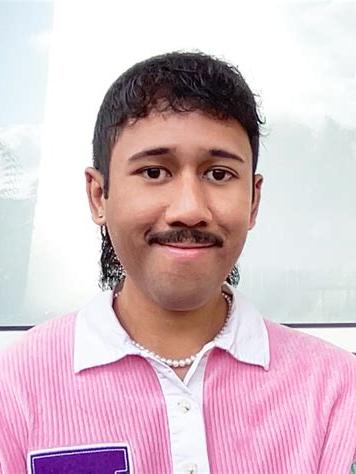

Valdy Wiratama
After completing an internship at his country's Financial Services Authority and its Ministry of National Development Planning, Valdy Wiratama earned a BA in Economics from the University of Indonesia. He subsequently worked as a research assistant at a management institute and a senior analyst for a multinational e-commerce platform. Amidst those two roles, his fervor for research and platform studies became more salient. This prompted him to pursue a MAin Cultural Economics and Entrepreneurship at Erasmus University Rotterdam, from which he graduated with a thesis called ‘Backstage at the Pandemic: How the COVID-19 Pandemic Affected Music Production, Distribution, and Promotion among Unsigned Musicians in the United States.’ Following this milestone, he embarked on a professional trajectory by joining an independent record label in the Netherlands before moving to Belgium to focus more on the research side of the music sector.
As a researcher who grew up during the Web 2.0 era, the research areas that Valdy Wiratama focuses on are profoundly inspired by his experiences with the internet. From dissecting events through discourses on Twitter to discovering new music on MySpace, the internet enabled him to access a wider range of information and adjust his preferences at a reduced rate. While he was able to comprehend these effects as an end user, he could only imagine the ramifications on content and art providers. With a current comprehension that requires more observations, his professional work is dedicated to understanding the supply side of the media sector, including CCIs, and its relationship with the internet. Particularly, his main focus lies on the industry of recorded music and its ever-evolving response towards platform gatekeepers, recommender systems, and the consequences on artists' labor market.
Under the Media Economics and Policy (MEP) unit, Valdy Wiratama is working on two projects. The first one is a European Union-funded Horizon Europe project called ‘Promoting Fairness of the Music Ecosystem in a Platform-Dominated and Post-Pandemic Europe.’ This project, abbreviated as 'Fair MusE,' allows him to focus on conducting a value network analysis, as well as examining business model innovations, of the recorded music industry to highlight factors that may currently impede fair and sustainable development, particularly for music creators. As for the second project, he is working on the study for the Discoverability of Diverse European Cultural Content in the Digital Environment, which was commissioned by the Directorate-General for Education and Culture (DG EAC) of the European Commission. His main responsibility lies within the tasks of conceptualizing discoverability, diagnosing the key challenges, reviewing existing methodologies, and analyzing the current curation practices, especially for music content.
Pleinlaan 9
1050 Brussels
Belgium
